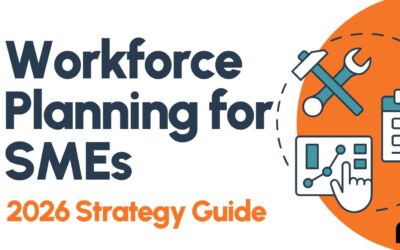Let’s begin with “what exactly is a candidate experience?” This is actually one of the most important factors for attracting talent. That’s because the candidate experience definition is “how candidates feel about your company once they experience your hiring process.” And these candidate ‘feelings’, whether good or bad, influence candidates in their decision to apply to your company or accept your job offer. FACT!
The candidate experience is important because you want your reputation as an employer to stand out – especially for those candidates who didn’t make it to the job offer. Sounds weird, I know, but the reality is, that their experience in the overall selection process will determine whether or not they apply for another job at your company, and if the said candidate has a bad experience as well as not getting the job, well… word of mouth is a very powerful tool.
So, if you want to get the cream of the crop, you need to invest in creating a positive experience for applicants. Let’s talk about how to make your candidate experience a really great one!
Keep things simple
I often apply to jobs randomly on all types of job boards, and I am baffled by how complex some job applications are. There has been so much research into this and stats show that ‘easy apply’ jobs have the highest application rate. Go figure!
What is your interview process like? Is it a simple, phone screen – interview – check and offer? If you have more than these few stages, this is another turn-off. How fast can your process be done? A slow process is a turn-off, candidates are moving as fast as the market. If you are lagging, then you are losing.
Are you searching for a unicorn? We come across our fair share of hiring managers who have lists as long as their arm for what their ideal candidate should have. We like to take these lists and simplify them. We are in the era of skills adjacencies, linkages between employees’ existing abilities and those that they need to learn. By identifying these adjacencies, HR and L&D professionals can identify opportunities for upskilling or reskilling to meet emerging needs.
Regular REAL communication
The one thing that all candidates crave is regular communication throughout the process. The words that you use and the tone that you have, all help to paint a picture for the candidate. If you have just had a bad meeting and are frustrated, do not then go and make a screening call to a candidate, they will pick up on your frustration and be turned off. All conversations should flow, and you should never be reading off a script. Everyone is unique, so no set of questions will apply to everyone.
Be sure to share expectations on how and when you will communicate, what the process will be and how long it will take. Then be sure to follow through, be on time for calls or meetings and be transparent about a candidate’s progress. Simple.
A job application acceptance email is a vital step that so many employers forget. Please set this up so the candidate knows that you have received their application. Equally, if the candidate is not successful, please email them and let them know.
Be Supportive, Make Them Feel Valued
Treating a candidate as you would treat an employee has many benefits. You provide employees with feedback and suggestions for improvement, so do the same during the interview process. Regardless of whether you hire them, your feedback and suggestions provide candidates insight into working at the company, professional development, and knowledge they can use in future interviews.
For every person you interview, they are equally interviewing you. It’s really important for a candidate to walk away from an interview feeling heard, supported and valued. The impression and experience will stay with them and they will recommend others for the job because they realize what a great company and opportunity it is.
Want to know how you did with your candidate experience?
Measuring and analyzing your current candidate experience is the first step to improving it. In order to gain insights on which parts of your candidate experience journey work well, and which ones have room for improvement, you need to get feedback from your candidates.
Send a candidate feedback survey to all the candidates when they exit the recruitment process, whether they were declined, opted out, or were hired. The survey can ask both closed-ended and open-ended questions to measure the experience and pinpoint problems and potential improvements.


